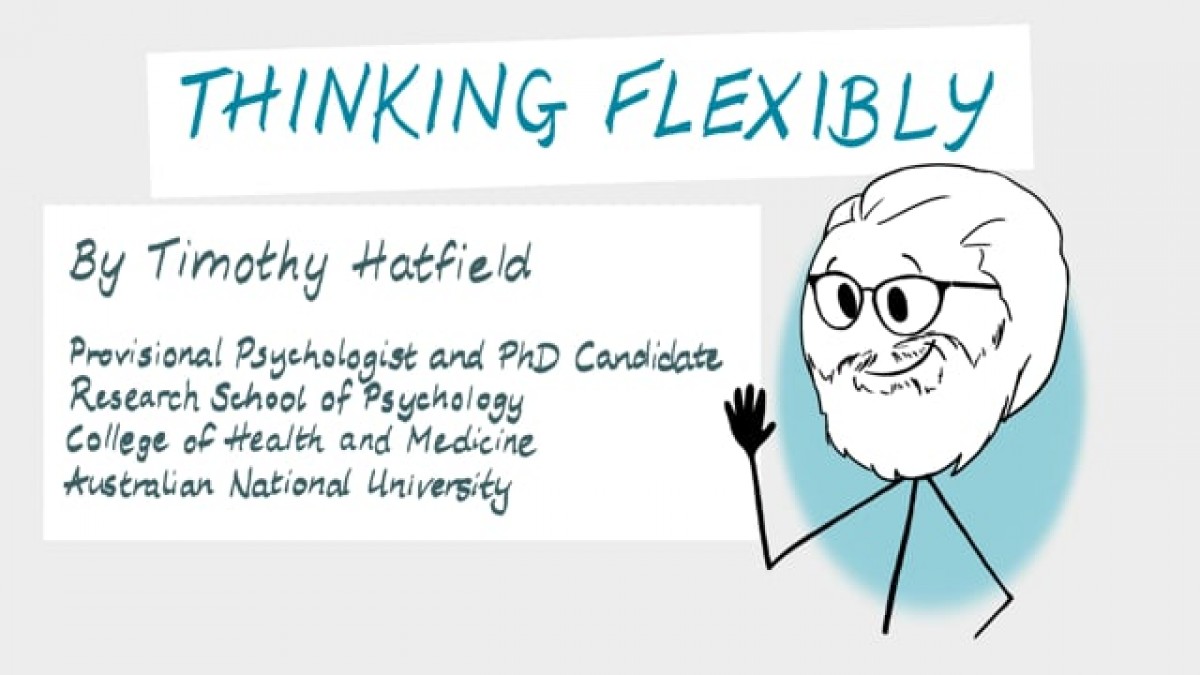As humans we interpret situations quickly and automatically. This can be useful, for example when crossing a road, but can sometimes can get us in trouble if it results in negative emotions or behaviour. If we can be flexible in our interpretations, however, our subsequent emotions and behaviours are likely to be much more positive. Timothy Hatfield suggests questions we can ask ourselves to help break out of a negative thinking trap.
*Timothy Hatfield is a Provisional Psychologist and PhD Candidate from the Research School of Population Health










